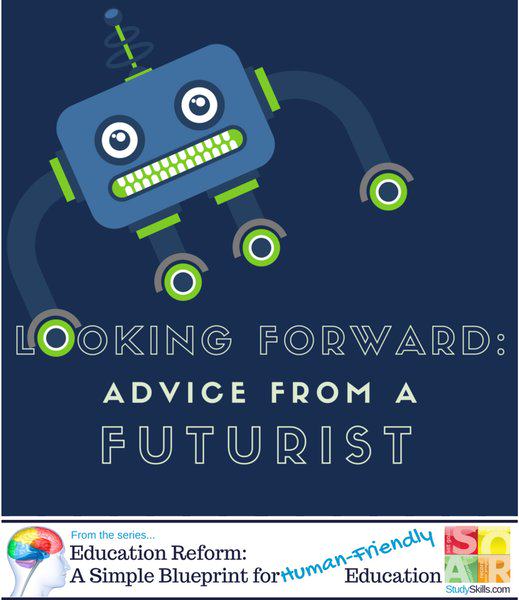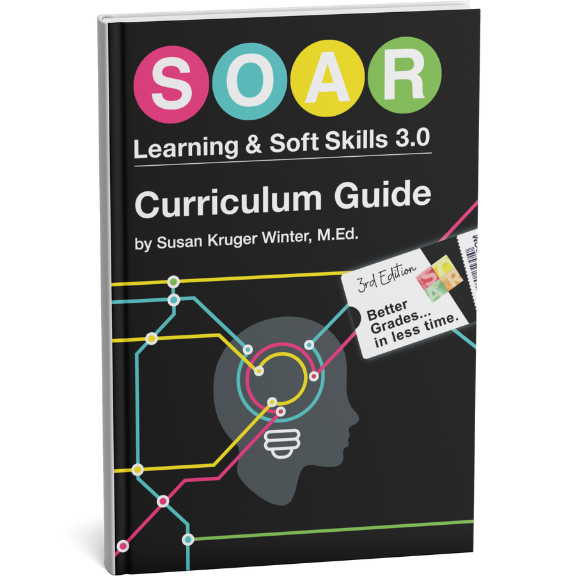Looking Forward: Advice from a Futurist
This article is from our series, Education Reform: A Simple Blueprint for Human-Friendly Education. For a directory of all articles in this series, click here. To get the full series in one downloadable PDF, sign-up for the free report in the black box on the right.

Discussions about the future can be somewhat scary. What will the world be like with autonomous vehicles and artificially-intelligent robots running everything?
However, Futurist Brian David Johnson shows us the undeniable role humans play in creating and designing their own future, and discusses how we can prepare future generations to be ready to create their future.
Futurecasting with a Futurist
Johnson is the futurist-in-residence at Arizona State University’s Center for Science and the Imagination. He provides insights on technology disruption leading to business opportunities and new models for business growth. He also challenges leaders to imagine what tomorrow will look and think about actionable visions for our future.
Regardless of the future date you might watch this video, the insights provided are evergreen; they will never go out of date! (I found the Q&A –starting at 26:52– to be most valuable to the topic of education reform.)
Video Highlights
- Advice to a 6-year old: Learn how to code and be human. You will need to be able to communicate with machines, but never lose focus of the creativity that comes with being human.
- How do we change the future? By changing the story people tell themselves about the future they will live in.
- Tools are just that: tools. There’s nothing special about the tools of the future. It’s all about the humanity behind the tool and how we use the tool.
Conclusion
What is the best job security in future? Be human. The industrial age was about what you could build. The information age was about what you know. The future will be about how you can collaborate with others and communicate with technology.
The language of the future… We must eliminate the current language of “either or” as it relates to technology and the arts, and replace it with an “and” language that forever integrates the two.
To our students’ success,

Susan Kruger, M.Ed.
Education Reform: A Simple Blueprint for Human-Friendly Education
This article is from our full report on education reform. Portions of the report will be released on a weekly basis in article form (see the directory below).
However, to access the full report (in its entirety) now, sign-up in the black box on the right.
Education Reform Article Directory:
- Introduction to Education Reform: A Simple Blueprint for Human-Friendly Education
- Three Core Problems with Education in the United States
- The Success Pyramid: A Model of Effective & Efficient Learning
- The Brain Biology of Learning: Why the Success Pyramid Works
- Solutions for Core Problem #1 with Education in the United States
Solutions for Core Problem #2 with Education in the United States
Solutions for Core Problem #3 with Education in the United States - Special Education: It Doesn't Have to Be So Difficult - Part I of III
Special Education: How to Solve & Prevent Learning Disabilities - Part II of III
Special Education: The Brain Biology of ADHD & Autism - Part III of III - Ideal Instructional Models: Successful Examples of Complete Human Education
- Finland: A Political Model of Education Reform
- Why Common Core Is the Worst & BEST Thing to Happen to Education
- The Simplest Leverage Points in Reading, Math, & Skills Instruction
- Looking Forward: Advice from a Futurist
- Conclusion: The Four Principles of Optimal Instruction
- Summary: An Ideal School System
SPECIAL REPORT: To get the full series in one downloadable PDF, sign-up for the free report in the black box on this page.

Six Steps
Conquer the Chaos
Get Our Free Guide & Information on...
 How to Organize & Motivate Students for Success
How to Organize & Motivate Students for Success
"*" indicates required fields
Get Our FREE Curriculum Guide!
The SOAR® Curriculum
The most critical learning, organizing, and communication skills needed for school. Learn more here.
Who’s Using SOAR®?
SOAR® Guarantee
Click here to learn more.




